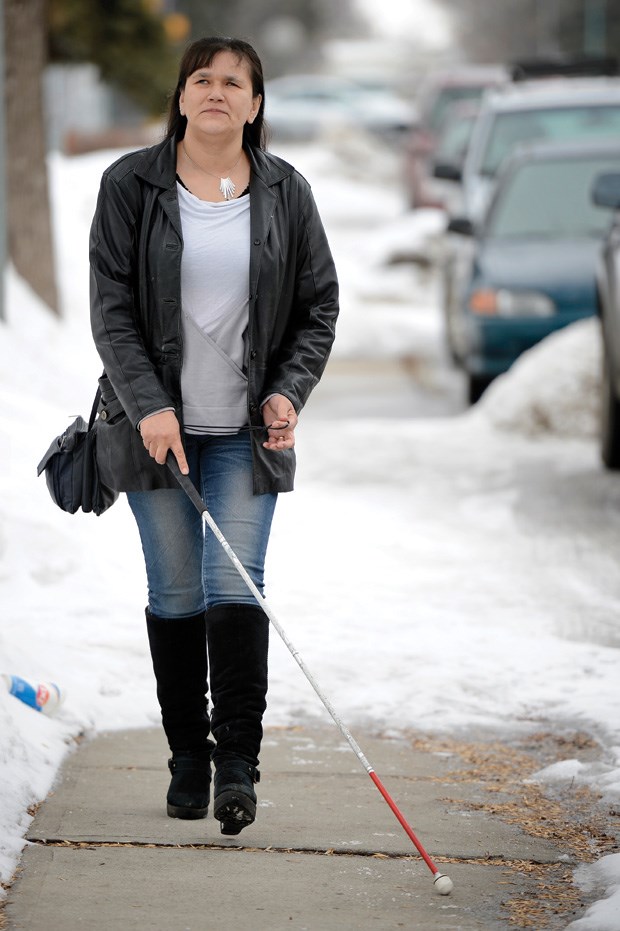Sponsored by Canadian Natiional Institute for the Blind
Bernadine Nielsen encourages her four children to get their eyes checked every year. The 41-year old Regina-based mother and student knows all too well the perils of neglecting eye health.
Nielsen went blind after developing eye inflammation at the age of eight. Growing up on a Cree reserve in northern Saskatchewan with her parents and six siblings, there was no easy access to medical care. Driving to see a doctor of optometry took six hours, but Nielsen to this day wishes the local nurses had encouraged her to make the trek.
When Nielsen started experiencing symptoms of iritis, a painful condition that causes an inflammation in the iris of the eye, she wasn’t taken to see a doctor of optometry until her vision got worse, despite the fact that the condition ran in her family.
Without medical care, Nielsen’s eyes burned, her vision became cloudy and she became extremely sensitive to sunlight. When the little girl finally made it to see a doctor of optometry, it was too late to preserve her vision.
“By then [the inflammation] had spread all over my eyes and destroyed my eye area,” Nielsen says, adding, “I suppose if I was diagnosed earlier I probably would be able to see now.”
She’s right, according to Doctors of Optometry Canada (DOC) whose experts say iritis can be treated with eye drops if caught early through an eye exam by a doctor of optometry.
In fact, when her younger brother developed the same inflammation several years later, his sight was saved because Nielsen’s family and doctors now knew what to watch for.
As for Nielsen, her eyesight deteriorated rapidly and the then-eight-year-old had to adjust to a whole new way of living.
“At first I was embarrassed, nervous and scared,” says Nielsen. “I wasn’t sure how to get around and I was depending on people to walk me places.”
Then, in her mid-teens, Nielsen moved to Regina where she lived with foster parents and was enrolled in an elementary school for students who were blind, where she was finally able to learn braille.
Recognizing her need to be independent, her foster parents also took her to CNIB (Canadian National Institute for the Blind), a charity that provides emotional and practical rehabilitation services to Canadians who are blind or partially sighted. There, she was taught to walk with a white cane and travel around the city on her own.
She continued to call on CNIB for support throughout the years, like when she married and had a family of her own, and needed training on doing household tasks like cooking without risking the safety of those around her. An expert came to her house and helped her label anything that would be useful to her.
Later, when she decided to go back to school to get her bachelor’s degree at First Nations University with a major in Cree, CNIB again supported her with getting around her new campus on her own. Working one-on-one with a CNIB specialist, she learned to navigate the unfamiliar terrain by counting how many steps to take before she needed to turn a corner or get to a room.
“We do this as many times as it takes until I’m comfortable. [The CNIB specialist] is very patient.”
The organization has also introduced her to assistive technologies that help her keep up in school – like using a laptop and a recorder to tape lectures, and a special camera to scan photos of classroom handouts and textbooks into her computer so that she can read them using voice software.
While Nielsen has built a full life, she recognizes that there are important things that she’s missed because of losing her sight.
“I wish that I could have seen my children when they were babies,” she says.
And as a mother with vision loss, Nielsen has one simple message for other parents: “Take kids early to get their eyes checked,” she says. “Be vigilant about it.”
May is Vision Health Month. Learn more at eyesareforlife.ca.



